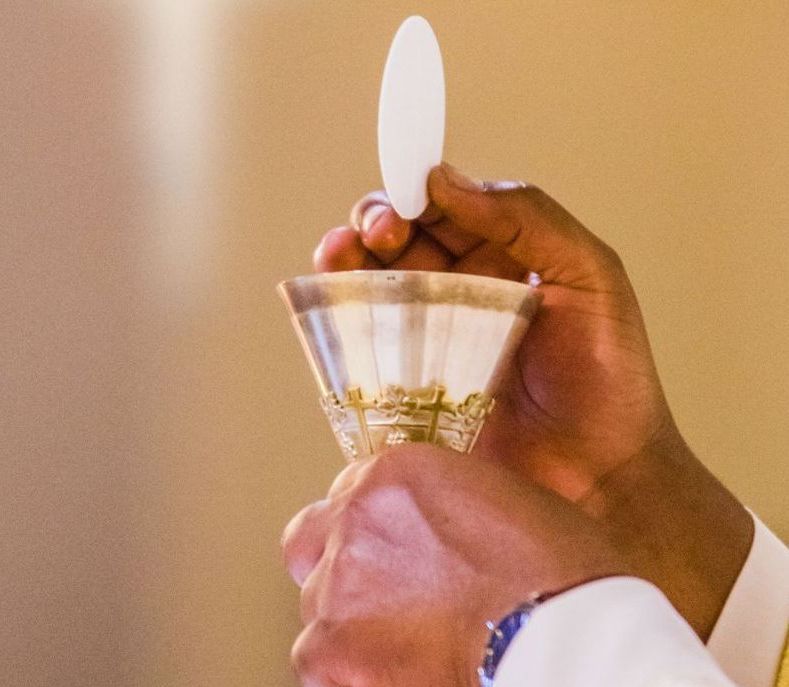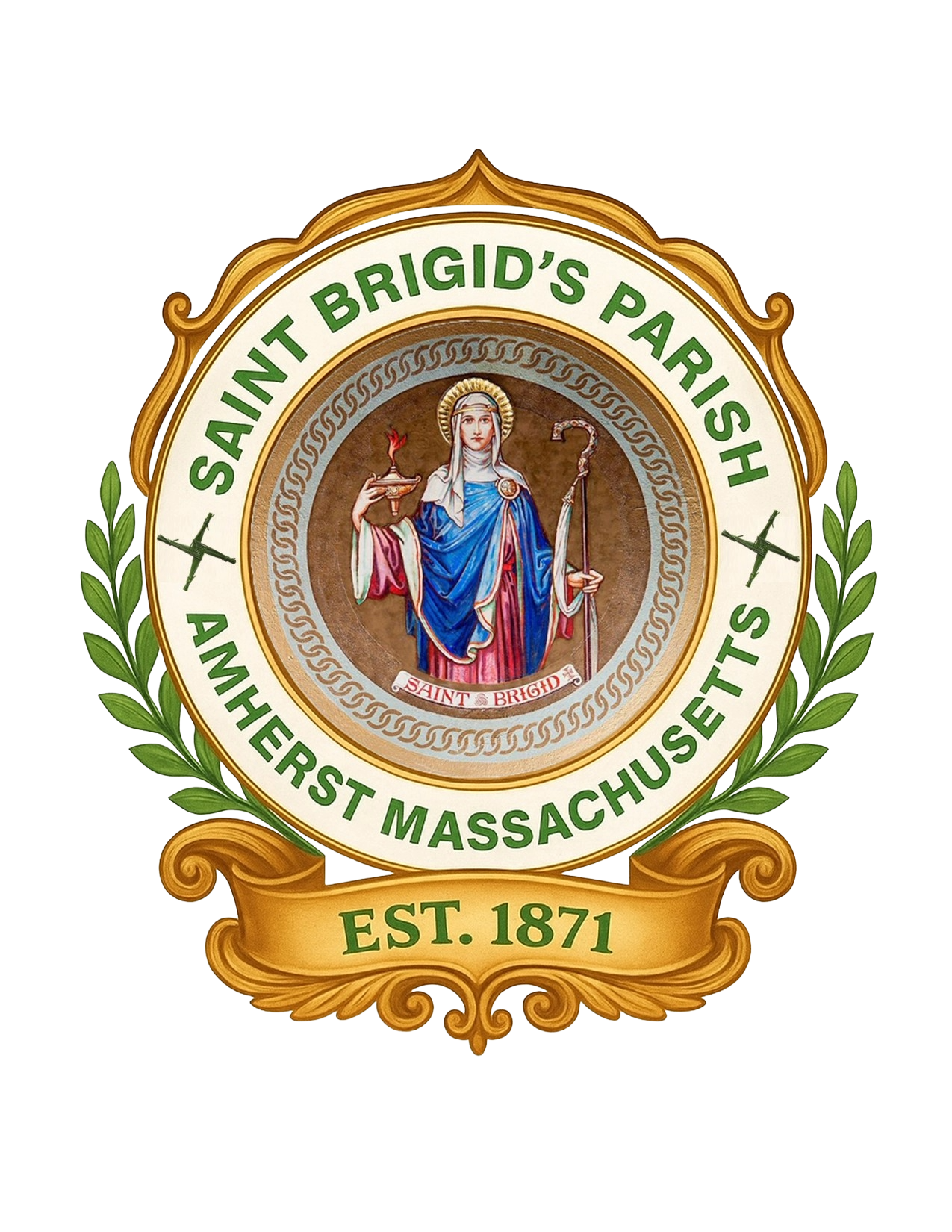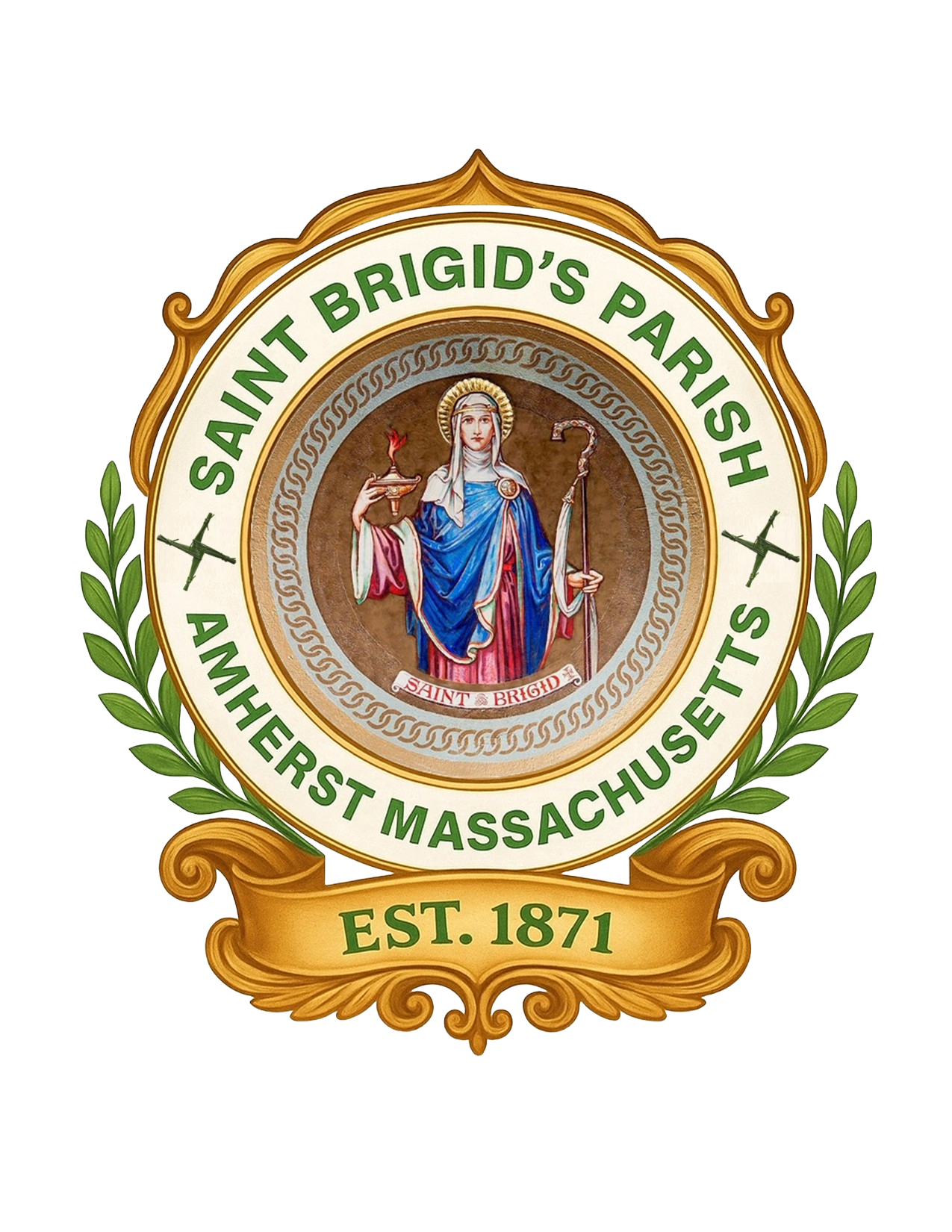Holy Communion
"The Holy Eucharist is the source and summit of the Christian life"
-2nd Vatican Council,
Lumen Gentium

The Eucharist
Also known as Holy Communion, is a central Christian sacrament. It is understood as a memorial of Jesus's Last Supper, where bread and wine are consecrated and become the body and blood
of Christ.
It commemorates the Last Supper, where Jesus shared bread and wine with His disciples, identifying them as his body and blood.
A SACRAMENT OF INITIATION
A personal encounter with Jesus in the Eucharist
The Eucharist is Not a Symbol - Beyond Symbolism Who can receive this sacrament?
Jesus is substantially present - body, blood, soul, and divinity - in Holy Communion. People may misunderstand and believe that the Eucharist is only a symbol of the body and blood of Christ. It is much more than that.
Catholics often refer to this as the Real Presence of Jesus in the Eucharist; in other words, its “substance.” In addition, after the consecration, look at the bread and wine as external characteristics or “accidents” that visibly endure without change; aspects like color, size, shape, or any other observable feature.
In offering the Sacrament of the Eucharist, the substance of bread and wine change into the body and blood of Christ, while the accidents (taste, appearance, etc.) remain unchanged.
Who Should Receive Holy Communion?
The answer to the above question is more important than you think. This information will help you know whether you should receive Communion.
Participating in Communion is an act of love for Christ. You are receiving Christ into your heart and soul. The Catechism says, “By this sacrament we unite ourselves to Christ, who makes us sharers in his body and blood to form a single body” (1331).
Holy Communion is for practicing Catholics who are in a state of grace, and who believe in the Real Presence of Jesus Christ in the Eucharist. Your beliefs must be in union with the teachings of the Catholic Church.
The key term here is “union” or “unity,” and so you can think of the Eucharist as a sacramental communion with Jesus Christ that profoundly deepens our unity with him and each other as members of his Church. In receiving the Holy Eucharist and saying, “Amen,” Catholics reaffirm our belief in—and renew our union with—Christ, his Church, and all the teachings Jesus gives us through his Church. So to receive the Eucharist, you are to fully agree with all the Church’s teachings, even if you’re struggling with that belief (see Mark 9:21–29). Jesus Christ himself gives us these teachings, so it is important to be in harmony with them.
Can Non-Catholics Receive Communion?
The Catholic Church views the Eucharist as a sign of unity among believers. To receive communion, one must be in full communion with the Catholic Church and believe in the Real Presence of Christ in the Eucharist. The Church's restriction on non-Catholics receiving Communion is not intended to be a rejection or judgment of individuals. It is a matter of respecting the Church's teachings and the integrity of the sacrament.
If a non-Catholic wishes to receive Communion, they are encouraged to explore becoming Catholic and entering into full communion with the Church.
Need to reach us?
The Catholic Church provides guidelines on receiving the Eucharist. If you have questions or would like
to explore the Catholic faith, we are here for you.
413.256.6181.



